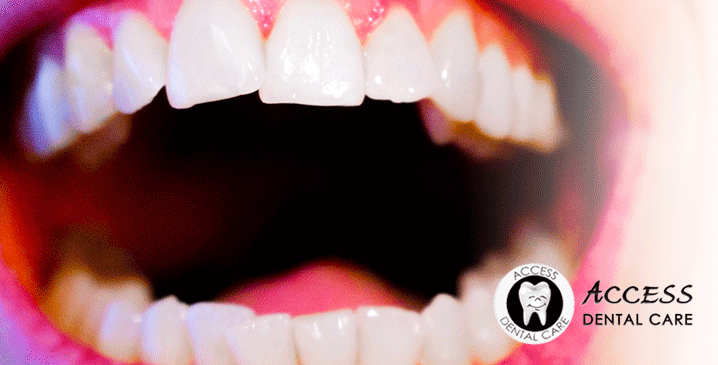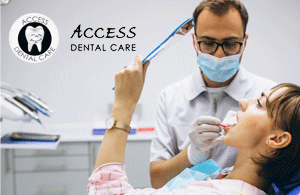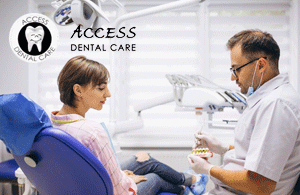HEALTHY MOUTH TIPS
Tooth Extractions: Telling You All About It
[ssba]
Tooth Extractions: Telling You All About It
Did you know that sometimes tooth extractions are unavoidable? It is true, and Dr. Song wants you to know that often, adults need to have their teeth pulled.
While this is the truth, you do not have to fear the procedure as it is quite routine and one of the most commonly performed dental procedures too.
Below, Dr. Song will talk to you more about reasons you may need a tooth extraction, what to expect, what you should alert the dentist about, and more.
If you think you need to have a tooth extracted or you are due for a dental checkup, now is the time to call Access Dental Care to book an appointment in our Reno, NV office.
 Picture: Pxhere |
Reasons a Tooth May Need to Be Pulled
Permanent teeth are supposed to last our entire lives, but this does not always happen. It may alarm you when there is a problem with a permanent tooth because, after all, it is supposed to be permanent. Unfortunately, our permanent teeth are not invincible, and they do often become victim to tooth decay, damage, and disease.
Below, we will discuss some of the reasons WHY you may need to have a tooth pulled from your mouth.
Infection Risk
If your tooth is at risk for infection, Dr. Song will recommend that it is extracted from your mouth. These cases only happen when a patient may have a compromised immune system. This often occurs due to chemotherapy treatment, immunosuppression, and a systematic disease.
Crowded Mouth
Sometimes, Dr. Song will recommend a tooth be extracted to alleviate other teeth in the mouth and prepare the mouth to receive orthodontic treatment. The goal of orthodontic treatment is to align your teeth evenly and correctly. If teeth are in the way, pressing on other teeth, or causing a problem, they may need to be extracted.
Periodontal Disease
Gum disease is serious, and it can lead to tooth loss without an extraction, which can be scary. If you have gum disease, Dr. Song may suggest an extraction to remove an infected tooth that has become loose.
Infection
When tooth decay eats into the tooth’s pulp, it can cause pain and infection within the tooth. This type of infection is often managed with root canal therapy but, RCT is not always effective. If the root canal does NOT treat the infection, the tooth may need to be extracted.
Tooth Extractions: What to Expect
Dr. Song is an experienced dentist and oral surgeon, which means he performs tooth extractions. It is important that you only work with a trained and licensed dentist to extract any of your teeth.
Before your tooth is pulled, Dr. Song will provide you with an injection of a local anesthetic to numb the area around the tooth. In complicated cases, a general anesthetic may be used, but this will be discussed with you prior to the procedure being performed.
If you are having an impacted tooth extracted, Dr. Song will cut away the gum and bone tissue to expose the tooth and then utilize specialized forceps to grab the tooth and gently rock it forward and backward to loosen it. If a tooth is too difficult to remove, it may be removed in pieces.
After the tooth is removed, a piece of gauze will be placed in the socket to help prevent bleeding. A blood clot will form in the socket. If the gum and bone tissue needed to be cut, you may receive stitches.
It is vital that you do not suck using a straw or smoke to prevent the blood clot from loosening and coming out of the socket. This can lead to a condition known as dry socket, which is painful. Should you develop dry socket, it is important that you contact Dr. Song immediately.
 Picture: Pxhere |
Should I Tell Dr. Song Anything BEFORE a Tooth Extraction?
Tooth extractions are considered safe but there are situations where you should inform Dr. Song prior to the procedure. If you have any type of condition that puts you at risk of developing a serious infection, that is something we need to know. You may need to receive antibiotics BEFORE and AFTER the procedure.
Prior to your tooth extraction, let Dr. Song know about your medical history and any supplements and prescription medications you take.Also, you need to let Dr. Song know if you have:
- Artificial joint
- Damaged or man-made heart valves
- Liver disease
- History of bacterial endocarditis
- Congenital heart defects
- Impaired immune system
My Tooth Has Been Pulled: Now What
After your tooth has been extracted, Dr. Song will provide you with aftercare instructions and send you home. Recovery from the extraction can take one day or it may take several days, but most patients are able to head back to work within a day.
Below are some tips from Dr. Song about how to reduce infection risk and discomfort:
- Take any and all prescribed medications as directed
- Use gauze to control bleeding and bite down on the gauze to help allow a clot to form in the socket
- Apply an ice pack directly to the outside cheek of the area where the tooth was extracted to minimize swelling
- Do not rinse or spit forcefully from your mouth for 24 hours
- Relax for the next 24 hours and limit your activity until bleeding subsides or you feel better
- Once 24 hours has passed, rinse your mouth with a salt water solution, which contains 8 ounces of warm water and a half teaspoon of salt
- Do not drink from a straw for the first 24 hours
- Eat soft foods until the area has healed
- Do not smoke
- Always prop your head up when lying down
- Always follow a good oral hygiene routine and continue to brush and floss your teeth as normal
When You Need to Call Access Dental Care
While tooth extractions generally do not cause any issues, there are times when you need to call our office.
It is normal for you to experience mild pain once the anesthesia has worn off. You should also expect slight bleeding and swelling over the next 24 hours.If your pain is severe or lasts for more than four hours AFTER the extraction, you need to call our office immediately.You should also call our office if you experience:
- Shortness of breath, cough, vomiting, chest pain, or severe nausea
- Swelling, redness, or excessive discharge from the area
- Fever or chills
- Signs of infection
The entire time to heal after a tooth extraction can take about one to two weeks. Over this time, new gum and bone tissue will grow over the area and close it in.One noticeable difference that may occur AFTER the extraction is that you may experience a shift in your teeth or your bite may be affected due to the missing teeth. For this reason, Dr. Song may recommend dental implants.
Contact Our Reno, NV Office Today
If you would like to learn more about tooth extractions, contact Access Dental Care today.
